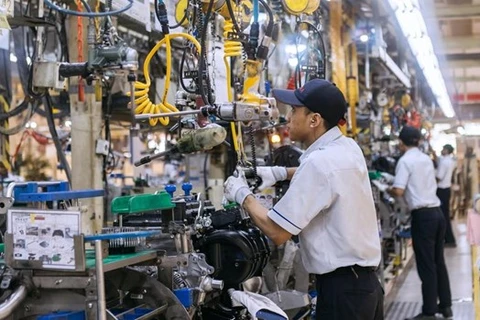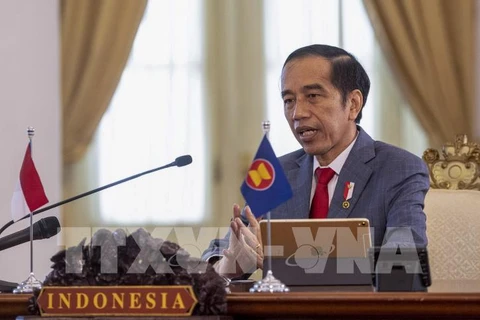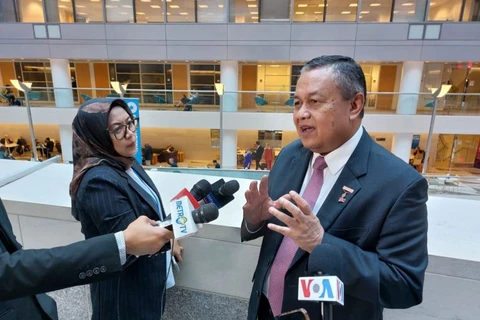Jakarta (VNA) – Indonesia is formulating a new legal basis for domestic product spending in the form of Public Goods and Services Draft Bill (RUU), the country’s Maritime Affairs and Investments Coordinating Minister Luhut Pandjaitan has said.
Speaking at a recent business matching event, the minister called on ministries, sectors and local governments to fulfil their commitments on domestic goods consumption to contribute 1.5-1.7% more to the country’s economic growth and create 2 million new jobs.
According to Luhut, the implementation of the above-mentioned draft law on Public Goods and Services will be one of the indicators used to evaluate the administrative reform of central ministries and local governments.
He also welcomed the fact that public spending on domestic products exceeded the expected target. As of October 5, domestic sales have reached 487 trillion rupiah (31.9 billion USD) out of a total of 950,000 billion rupiah committed, exceeding the government's target of 400 trillion rupiah.
Earlier on June 14, President Joko Widodo urged central ministries and local governments to increase public spending on domestic products
The Indonesian government has launched a movement “Proud of Indonesian-made Products” movement (Gernas BBI) with the aim of promoting the national economy, including guiding ministries, sectors, localities and state-owned enterprises to prioritise using domestic products.
This year, Indonesia aims to raise the total transaction value of domestically produced products ordered through the e-catalog system and online market to 400,000 billion rupiah (27.2 billion USD), thereby contributing 1.71% to the national economic growth./.

Indonesia considered bright spot of global economy
Indonesia is a bright spot of the global economy amid risks of economic contraction facing many countries in 2022, Managing Director of the International Monetary Fund (IMF) Kristalina Georgieva has said.






















